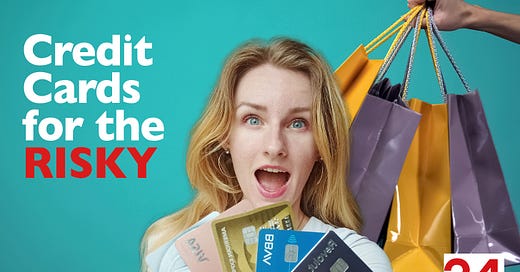Bank Credit Cards and Non-Bank Credit Cards
What are the differences and what major pitfall to avoid
Roughly 90% of Czechs own one or more payment cards, classified as debit cards or credit cards. The latest published statistics of the Czech National Bank speak of 1,500,000 credit cards held by Czechs in 2020. However, the use of credit cards in the Czech Republic is decreasing yearly. But why? One reason for their year-over-year decline is the mistake…
Keep reading with a 7-day free trial
Subscribe to 24Hour Journal to keep reading this post and get 7 days of free access to the full post archives.



